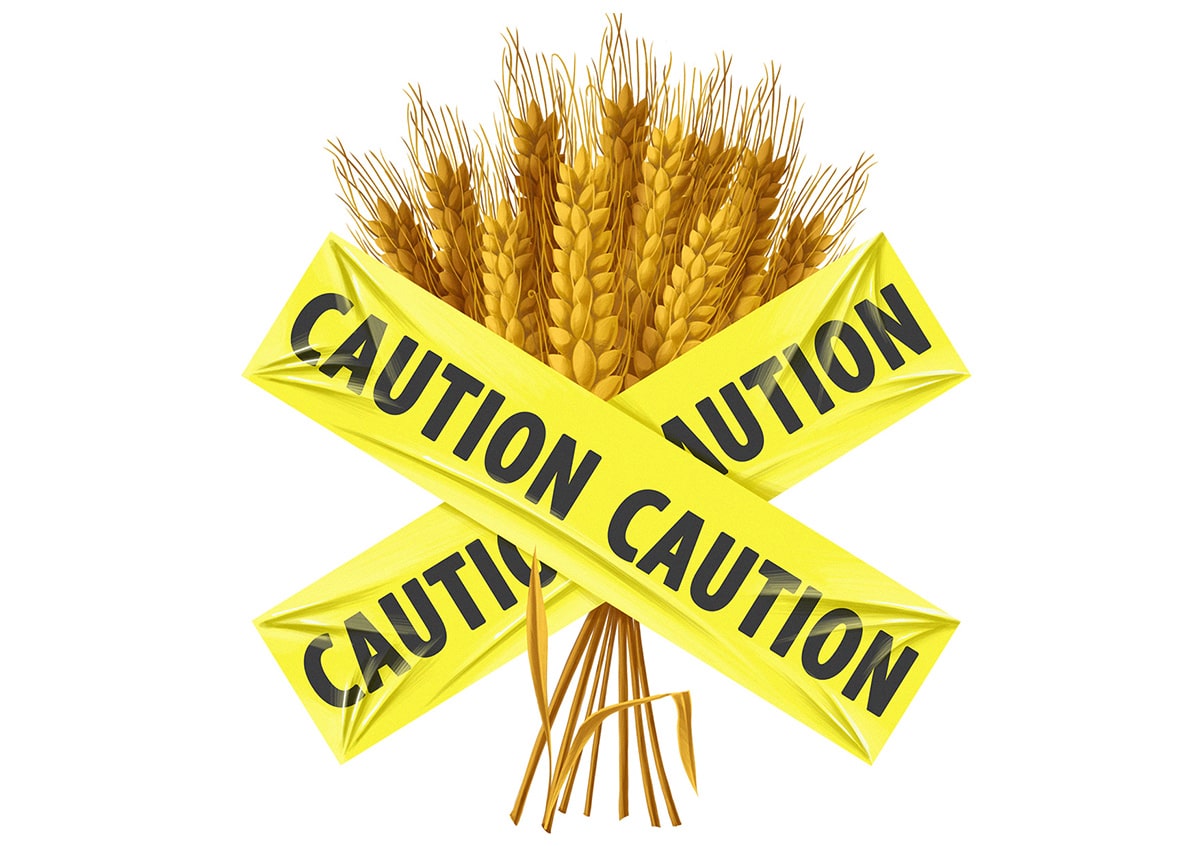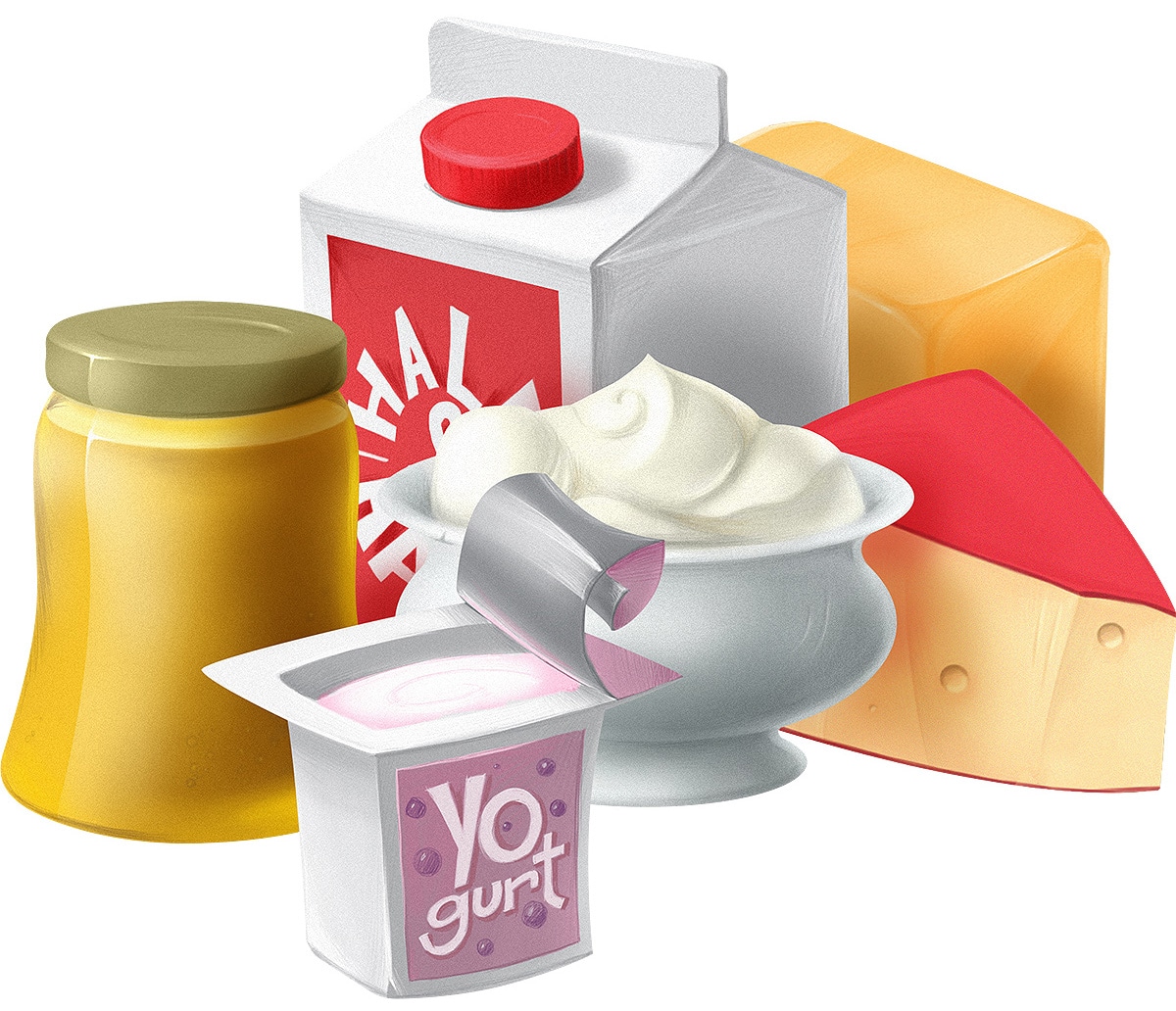
When people go vegan for a long time, they often lose their ability to digest meat - they stop making the enzymes they need to break down animal protein and then if they do start eating meat again, they feel sick.
So does the same thing happen with Paleo? If you don’t eat gluten or dairy for months at a time, will you start being gluten- or lactose- intolerant even when you weren’t before? Is it a good idea to occasionally “cheat” just to keep your body used to eating those things in case you ever need to?
It’s possible that after you eat Paleo for a while, your gut microbiome might get “out of practice” (so to speak) digesting some types of foods, like dairy - you can still start eating those foods again eventually, but you’d need to get used to them.
But before diving into that, we’re starting with a few things that look like “Paleo made me ____ intolerant” but aren’t.
Getting used to feeling good isn't a food intolerance.
Here’s one common thing that people often mistake for “Paleo gave me a food intolerance:” they eat junk food their whole life, and they feel kind of low-key lousy all the time. Maybe they get heartburn after meals or have chronic constipation or massive energy crashes in the afternoon, but they’re used to it so it kind of fades into the background.
Then they start eating Paleo, and suddenly the problems start clearing up. The acne goes away. The digestive issues go away. The mood swings go away. Slowly, that feeling becomes the new normal.
If that person decides to stop eating Paleo and start eating junk again for whatever reason (they go on vacation, they just want a cheat day, it’s the holidays…), then they’re going to go back to feeling just as lousy as they did pre-Paleo, but this time it won’t feel normal. It’ll feel like a really nasty shock to suddenly have all the heartburn/constipation/energy crashes come back.
If this is you, then Paleo didn’t make you feel bad after eating junk. You always felt bad after eating junk; you were just desensitized to it. All Paleo did was set you up to you notice the problem that was there all along.
The same thing can happen with any individual food or food group, like dairy. Paleo might cause you to notice the symptoms of lactose intolerance, but that’s not the same thing as causing lactose intolerance.
The nocebo effect also isn’t a food intolerance.

The nocebo effect is the opposite of the placebo effect. In the placebo effect, you get a something totally ineffective and feel better because you think you’re taking medicine. In the nocebo effect, you get something totally harmless and feel worse because you think you’re eating something bad.
This study found that some people are actually lactose tolerant but feel physical symptoms after eating dairy because they think they’re intolerant: this is a thing that actually happens. After being on Paleo, you might expect to feel bad after eating pizza, so you might be hypersensitive to every tiny stomach gurgle. You might even have so much anxiety about it that you give yourself stress-induced GI problems (no really, this is also a thing!). Expectations are way more powerful than most people think - if you expect to feel lousy, you might very well expect the feeling into reality.
Getting psychologically worked up about eating grains might give you real symptoms, but it’s not the same thing as physically developing a food intolerance.
But can you actually give yourself a food intolerance with Paleo if you didn’t have one before?
With all of the above duly noted, now it’s time to dive into the science of whether or not you can actually give yourself a food intolerance by avoiding dairy, gluten/grains, or other foods.
Lactose/dairy intolerance
A quick review: “lactose intolerance” means that you can’t digest lactose, the sugar in milk. If you can’t digest it properly, you get gastrointestinal issues (gas, diarrhea or constipation, bloating, pain) when you eat dairy.

Lactose is broken down by an enzyme called lactase: almost everyone produces lactase as babies, but most people stop making lactase as they grow up. Some people (especially people with northern European ancestry) have a genetic mutation that allows them to keep making lactase as adults. Eating or avoiding dairy can’t change your genes, so whether you make lactase as an adult or you don’t, it has nothing to do with your diet. If you’re in the lucky few who make lactase as an adult, you’ll still do it whether or not you’re eating any actual dairy.
But! Some people who don’t make lactase might still be able to handle dairy because their gut bugs step up to the plate to deal with the lactose instead. This effect is highly variable and also depends on factors like total meal size, the other food in a dairy-containing meal, and how regularly the person eats dairy. It might be possible that you can “train” your gut biome to digest lactose and that if you get out of “training” (say, by eating dairy-free Paleo), you might have trouble eating dairy again until your gut gets back in training.
On the other hand, one of the very few studies to directly test this effect in real humans suggested that the “training” effect was just placebo: people who drank sugar water had the same improvements in lactose tolerance as people who drank milk.
In other words, it’s possible that some people without lactase persistence might be OK with eating dairy when they eat it regularly, but if they stop eating it for a while and their gut biome changes, they might have some initial symptoms until their gut biome gets “re-trained” to digest lactose. It’s not a permanent intolerance, and it’s not the same thing as making yourself stop or start producing lactase, but there’s some evidence to suggest that it could happen.
Other foods
What about grains and wheat? Legumes?
In this study, researchers took 10 healthy people without any previous gluten issues and had them stop eating gluten for a month. They found that even a short time on a gluten-free diet provoked significant changes in the gut biome because the folks on the gluten-free diet were eating different types of fiber. For example, wheat is the major sources of inulin and oligofructose, two different types of fiber, in the American diet. If you stop eating wheat, that’s a big change in the types of fiber going into your gut. Since fiber is what the gut bacteria eat, changing the menu will change what kinds of bacteria you have.
This study wasn’t totally relevant to Paleo, since the subjects ate gluten-free processed food instead of real Paleo food, but it does very obviously show that the gut bacteria adapt to the presence of absence of wheat and grains in your diet. Another more recent study just confirmed the same effect. (The study had people go back to the original gluten-containing diet after a 4-week gluten-free trial, but didn’t report whether or not they had any symptoms of gluten intolerance afterwards.)
This research suggests that if you stop eating wheat and let those changes happen, and then you want to start eating wheat again, it’s possible that you might need some time to grow back the right bacteria. It’s possible that a similar effect happens with legumes, although there are even fewer studies on legume elimination than there are on wheat elimination, so the evidence is even thinner.
In short: if Paleo “gave you a food intolerance,” it might be in your microbiome.
Your gut microbiome will definitely change on Paleo. It’s possible that those changes could make it uncomfortable to digest some non-Paleo foods when you start eating them again. But this isn’t permanent: gut bacteria composition isn't set in stone. If you decide that Paleo really isn’t for you and you actually want to become a high-carb vegan, it might be helpful to transition very gradually, but it should be possible to make the switch and get your gut bacteria on the new program.
There's no irrevocable choice where once you go Paleo, lentils are poison to you forever. Based on studies of the gut biome, it's more a question of getting your body (re-)accustomed to whatever it needs to digest.





Leave a Reply